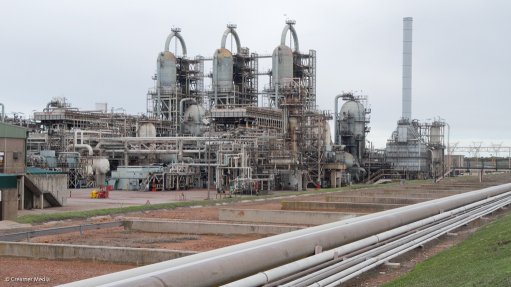Excise duties and the Laffer curve
Whoever said “what goes up must come down” never visited South Africa nor heard of excise duties nor understood their application in South Africa and the Southern African Customs Union (Sacu) region.
These words were, in fact, uttered by Sir Isaac Newton, widely recognised as one of the most influential mathematicians and scientists of all time. American comedian George Burns built on this quote, saying: “Everything that goes up must come done. But there comes a time when not everything that’s down can come up.”
Returning to Newton – it is a mathematical impossibility, or simply just an impossibility, that excise duties in South Africa, or rather Sacu, will ever reduce. In Sacu, there are two types of excise duties: specific excise duties, also known as sin taxes and ad valorem (on value) taxes, also known as luxury or nonessential duties.
Let’s deal with luxury duties first. These are really ‘nonsense duties’ and should be abolished soonest. In 2020/21, they accounted for R4.1-billion of government revenue, compared with R46.8 billion for sin taxes. In contention, however, is the types of products that are supposedly luxury goods. How can line telephone sets with cordless handsets, fireworks and cathode-ray tube monitors and muzzle-loading firearms be considered luxury goods? For the uninitiated, a muzzle-loading firearm is an antique designed to use black powder and cannot fire fixed ammunition.
Sin taxes fall into two categories, with the first comprising excise duties imposed by SACU countries on alcohol products (malt beer, traditional African beer, spirits/liquor products, wine and vermouth and other fermented beverages), petroleum products and tobacco products. The second category comprises excise duties that may be imposed by SACU countries separately, namely environmental levies like those on electric filament lamps, electricity generation, motor vehicle carbon dioxide emissions; levies on plastic bags and tyres; the fuel levy and the Road Accident Fund levy on petroleum products; the Health Promotion Levy on sugary beverages; and the International Oil Pollution Compensation Fund levy.
According to the South African Revenue Service (Sars), “the primary function of these duties and levies is to ensure a constant stream of revenue for the State, with a secondary function of discouraging consumption of certain harmful products that [are] harmful to human health or to the environment”. It adds: “The revenue generated by these duties and levies amounts to approximately 10% of the total revenue received by Sars.”
On November 13, 1789, Benjamin Franklin, one of the founding fathers of the US, wrote in a letter to Jean-Baptiste Leroy: “Our new Constitution is now established, and has an appearance that promises permanency; but in this world nothing can be said to be certain, except death and taxes.”
Worryingly, in the Sacu region, there is a third – the yearly increase in excise duty rates. But this cannot continue unabated. Apparently, Sacu has not heard of the Laffer curve, which illustrates the relationship between excise duty rates and the revenue they generate. The Laffer curve was the topic of discussion in Ferris’ Economics class while he was ditching high school in the 1986 movie, Ferris Bueller’s Day Off. Maybe Ferris was not the only one ditching class.
If excise duties are too high along the Laffer Curve, they will discourage the duty activities enough to actually reduce the total excise duty revenue. An added concern is the illicit trade that the high rates of excise duties incentivise.
On the day of writing – March 12 – News24 reported that British American Tobacco (BAT) announced that it had embarked on a process to optimise its operations to remain competitive and to prevent massive job losses, as it had “fought an uphill battle” to convince government to act against the illicit trade in cigarettes. In the excise duty stakes it would be highly surprising if BAT was alone.
Comments
Press Office
Announcements
What's On
Subscribe to improve your user experience...
Option 1 (equivalent of R125 a month):
Receive a weekly copy of Creamer Media's Engineering News & Mining Weekly magazine
(print copy for those in South Africa and e-magazine for those outside of South Africa)
Receive daily email newsletters
Access to full search results
Access archive of magazine back copies
Access to Projects in Progress
Access to ONE Research Report of your choice in PDF format
Option 2 (equivalent of R375 a month):
All benefits from Option 1
PLUS
Access to Creamer Media's Research Channel Africa for ALL Research Reports, in PDF format, on various industrial and mining sectors
including Electricity; Water; Energy Transition; Hydrogen; Roads, Rail and Ports; Coal; Gold; Platinum; Battery Metals; etc.
Already a subscriber?
Forgotten your password?
Receive weekly copy of Creamer Media's Engineering News & Mining Weekly magazine (print copy for those in South Africa and e-magazine for those outside of South Africa)
➕
Recieve daily email newsletters
➕
Access to full search results
➕
Access archive of magazine back copies
➕
Access to Projects in Progress
➕
Access to ONE Research Report of your choice in PDF format
RESEARCH CHANNEL AFRICA
R4500 (equivalent of R375 a month)
SUBSCRIBEAll benefits from Option 1
➕
Access to Creamer Media's Research Channel Africa for ALL Research Reports on various industrial and mining sectors, in PDF format, including on:
Electricity
➕
Water
➕
Energy Transition
➕
Hydrogen
➕
Roads, Rail and Ports
➕
Coal
➕
Gold
➕
Platinum
➕
Battery Metals
➕
etc.
Receive all benefits from Option 1 or Option 2 delivered to numerous people at your company
➕
Multiple User names and Passwords for simultaneous log-ins
➕
Intranet integration access to all in your organisation


















